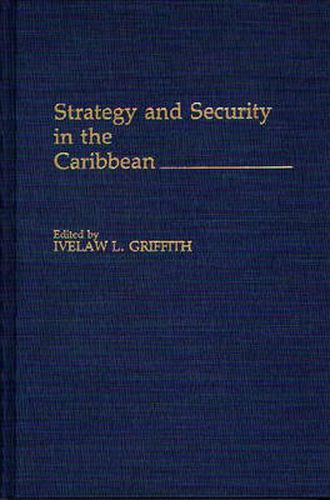Readings Newsletter
Become a Readings Member to make your shopping experience even easier.
Sign in or sign up for free!
You’re not far away from qualifying for FREE standard shipping within Australia
You’ve qualified for FREE standard shipping within Australia
The cart is loading…






This contribution to the debate on security in the Caribbean highlights the security problems of small states. The contributors analyze internal and external security issues, military, political, and economic influences and security initiatives and policies from indigenous, regional, and extra-regional perspectives. They also present empirical case studies of four English-speaking nations. The volume begins by introducing the dynamics influencing Caribbean security: leadership, history, geopolitics, and internal political violence. It then presents four case studies: Barbados, Guyana, the Virgin Islands, and the Belize-Guatemala territorial dispute. Realist theory, conflict theory, political economy, and political psychology are among the theoretical frameworks represented in these essays. Focusing particularly on the English-speaking Caribbean, the authors examine the resources, institutions, economies, geopolitics, internal instability, militarization, and intervention shaping the security environment. This work should be of interest to scholars and policy analysts of military/security issues, the Caribbean/Latin America, and Third World development.
$9.00 standard shipping within Australia
FREE standard shipping within Australia for orders over $100.00
Express & International shipping calculated at checkout
This contribution to the debate on security in the Caribbean highlights the security problems of small states. The contributors analyze internal and external security issues, military, political, and economic influences and security initiatives and policies from indigenous, regional, and extra-regional perspectives. They also present empirical case studies of four English-speaking nations. The volume begins by introducing the dynamics influencing Caribbean security: leadership, history, geopolitics, and internal political violence. It then presents four case studies: Barbados, Guyana, the Virgin Islands, and the Belize-Guatemala territorial dispute. Realist theory, conflict theory, political economy, and political psychology are among the theoretical frameworks represented in these essays. Focusing particularly on the English-speaking Caribbean, the authors examine the resources, institutions, economies, geopolitics, internal instability, militarization, and intervention shaping the security environment. This work should be of interest to scholars and policy analysts of military/security issues, the Caribbean/Latin America, and Third World development.